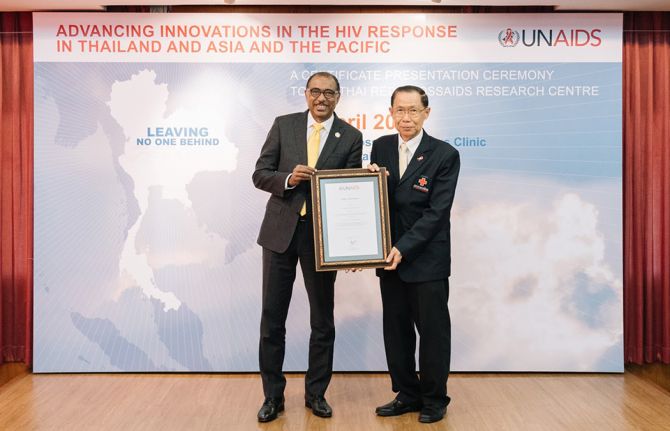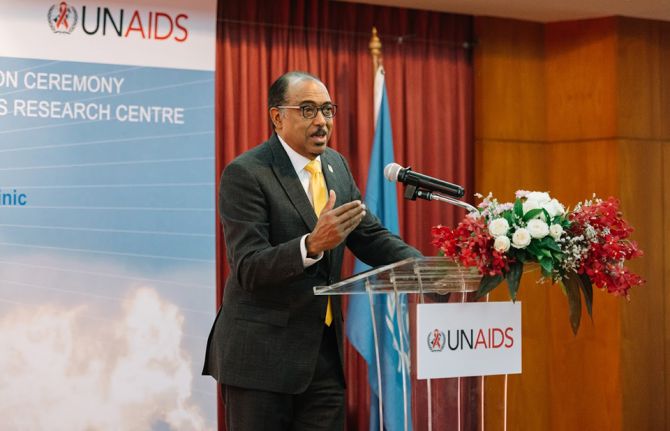



Feature Story
Recognizing the achievements of the Thai Red Cross AIDS Research Centre
02 May 2019
02 May 2019 02 May 2019The Thai Red Cross AIDS Research Centre (TRC-ARC) has been at the forefront of the response to HIV since the early days of the epidemic, when its director, Praphan Phanuphak, diagnosed Thailand’s first case of HIV, in 1985. Since then, it has continued to develop and promote innovative prevention and treatment approaches, including pre-exposure prophylaxis (PrEP), same-day antiretroviral therapy and key population-led health services.
Located in Bangkok, Thailand, the TRC-ARC is an organization that sits under the umbrella of the Thai Red Cross Society. The Thai Red Cross has been a leading organization in the country’s response to HIV through projects implemented with partners and funded through the United States President’s Emergency Plan for AIDS Relief (PEPFAR).
Since the end of 2014, the TRC-ARC has been offering PrEP to people at higher risk of becoming infected with HIV through projects including the Princess PrEP programme, which is strongly supported by Her Royal Highness Princess Soamsawali. The Princess PrEP programme provides free PrEP services through community-led organizations such as the Service Workers in Group (SWING) Foundation, the Rainbow Sky Association of Thailand, Mplus, CAREMAT and SISTERS. The TRC-ARC also offers members of those community groups comprehensive training on health-care provision, sustainable financing, evaluation and quality control.
Since 2017, the TRC-ARC has also been offering same-day antiretroviral therapy to improve retention in care and adherence to treatment. People who test positive for HIV are initially prescribed a two-week supply of medicine and are then referred to other health facilities to continue their treatment.
Another significant achievement has been the creation of the Tangerine Clinic, the first in the country to offer health care and counselling tailored towards transgender people. The clinic is managed by transgender people and staffed by gender-sensitive medical professionals. It provides sexual and reproductive health-care services, psychosocial counselling, hormone counselling and therapy, HIV testing services and referrals for treatment.
During his recent visit to Thailand, the Executive Director of UNAIDS, Michel Sidibé, paid tribute to the work of Mr Praphan and the TRC-ARC at an event organized by UNAIDS and attended by representatives of the Thai Ministry of Public Health, the Thai Ministry of Foreign Affairs, PEPFAR, USAID, United Nations development partners and civil society organizations.
“The Thai Red Cross AIDS Research Centre has played a key role in developing and promoting innovative and effective prevention and treatment approaches to HIV for more than 30 years,” said Mr Sidibé, “Its contribution expands beyond Thailand, being a catalyst for change across the Asia–Pacific region,” he said.
Mr Praphan thanked UNAIDS for recognizing the achievements of the TRC-ARC and said its work would continue until the end of the AIDS epidemic. “I accept this recognition on behalf of all the people working with me at the Thai Red Cross and in the community to ensure that no one is left behind. We have demonstrated how science, integrated into the community level, can bring health care to the most marginalized groups of people.”



